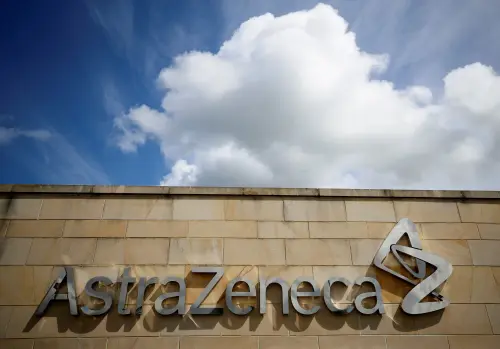AstraZeneca announced plans to invest $2.5 billion in a research and development hub in Beijing, aiming to revitalize its business in China, the company’s second-largest market. This move follows challenges, including the arrest of its China president last year.
Chief Executive Pascal Soriot, who met with Beijing’s mayor to announce the investment, also revealed two licensing agreements with Chinese firms and a joint venture with another company focused on vaccines. These initiatives underscore AstraZeneca's commitment to the Chinese economy.
“This investment reflects our belief in the world-class life sciences ecosystem in Beijing, the extensive opportunities for collaboration, and our continued commitment to China,” Soriot stated.
The new R&D center will collaborate with advanced biology and AI science in Beijing, playing a crucial role in the company’s global mission to deliver innovative medicines to patients worldwide. This will be AstraZeneca's second R&D facility in China, following the opening of a site in Shanghai in 2024, complementing the company’s existing R&D centers in the U.S. and Europe.
The Chinese government has been investigating AstraZeneca's executives and operations in the country, where the company has invested significantly in factories and licensing agreements with local biotech firms. China accounted for about 12% of the company’s revenue last year. AstraZeneca, the UK's largest listed business, is the leading foreign drugmaker in China.
Despite recent challenges, Soriot has consistently praised the value of conducting business in China, even as other multinational companies express concerns over geopolitical tensions affecting the pharmaceutical sector. He is expected to attend a major development conference in Beijing, where he may encounter Chinese President Xi Jinping.
AstraZeneca placed its former China head, Leon Wang, on administrative leave following his detention by Chinese authorities. The company expressed uncertainty about Wang's current situation. Although the stock was adversely affected by news of the investigations in October 2024, shares have since recovered as investors believed the long-term impact would be minimal.
The licensing deals announced involved early-stage experimental medicines in collaboration with Chinese companies Harbour BioMed and Syneron Bio, although financial specifics were not disclosed. These agreements are part of a broader trend, with AstraZeneca having signed around a dozen similar deals in recent years, totaling at least $9 billion, including projects focused on obesity.
Additionally, AstraZeneca is launching a joint venture with BioKangtai to develop, manufacture, and commercialize vaccines for respiratory and other infectious diseases in China and beyond. This facility in Beijing will mark the company's first vaccine manufacturing site in the country. The company has also formed a partnership with Beijing Cancer Hospital, focusing on data science and clinical development.
